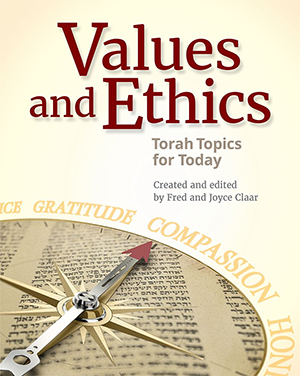SHEMINI —
In the 1600’s, Sir Isaac Newton taught us that for every action in the physical world, there is an equal and opposite reaction. For example, if you press a button with your finger, your finger is also pressed by that button. (Try it!) Newton’s principle not only applies to the physical world; it applies to many areas of our own lives as well. Every action we take produces a reaction. Our actions have consequences.
Centuries before Newton discovered his laws of motion, Aaron’s sons learned this lesson the hard way in this week’s Torah portion. They acted poorly and strangely and were instantly very severely punished. The Torah portion is teaching us that our actions can have important and immediate consequences.
Life brings both good and bad consequences depending on our actions. Sometimes we can predict what the consequences may be. For example, if we hit our baby sister, she will probably cry. Buy our mother flowers, and she will probably give us a big hug and kiss. Do not study, and we will probably not do well on the test. Sometimes, though, we cannot tell what the consequences of our actions will be. We just have to trust that, if we make the right choices, good consequences will follow.
TALK TO YOUR KIDS about understanding that their actions have consequences which they did not consider before they acted.
CONNECT TO THEIR LIVES:
- Has there been a time in your life when you have done something without first thinking about the consequences for yourself or for others?
- Can you think of a time when your actions have had negative, or positive, consequences? How did it make you feel? What did you learn from the experience?
- Have you ever predicted the consequences of your actions and been surprised by a different outcome?
By Yael Hammerman
Values & Ethics—Through a Jewish Lens is created by Fred and Joyce Claar to bring the wisdom of Judaism into family discussions.






